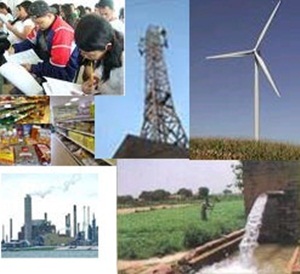Days after India reported a slowing of economic growth to levels not seen in the past 5 years, the World Bank has come up with a reassuring report that the country is set to retain its ‘fastest growing emerging economy’ title with growth rates of 7.5 per cent in the next three years.

Government figures released on Friday showed India’s GDP growth rate declined to 5.8 per cent in the January-March quarter of the 2018-19 financial year, hitting the slowest in the past 17 quarters.
The Bank based its views on expectations of robust growth in investment and private consumption.
The World Bank, in its Global Economic Prospects released on Tuesday, said India is estimated to have grown 7.2 per cent in fiscal year 2018-19 that ended on 31 March. The economy benefited from public infrastructure spending despite a slowdown in government consumption, the Bank noted.
China, which recorded growth of 6.6 per cent in 2018, is projected to grow at 6.2 per cent in 2019, and then subsequently at 6.1 per cent in 2020 and 6 per cent in 2021, the bank said.
India will continue to retain the position of being the fastest growing emerging economy, with its growth rate projected to be 1.5 per cent more than China’s 6 per cent in 2021.
According to the World Bank, growth in India is projected at 7.5 per cent in Fiscal Year 2019-20 (April 1, 2019 to March 31, 2020), unchanged from the previous forecast, and to stay at this pace through the next two fiscal years.
“Private consumption and investment will benefit from strengthening credit growth amid more accommodative monetary policy, with inflation having fallen below the Reserve Bank of India’s target,” it said.
The World Bank seems to attribute the slowdown of the economy in the final quarter of the 2018-19 financial year to businesses deferring decisions due to political uncertainties as the general elections approached.
Support from delays in planned fiscal consolidation at the central-level should partially offset the effects of political uncertainty around elections in FY2018-19, it said.
The World Bank said India’s urban consumption was supported by a pick-up in credit growth, whereas rural consumption was hindered by soft agricultural prices.
According to World Bank, production growth in India was robust and broad-based, with a slight moderation in services and agricultural activity accompanied by an acceleration in the industrial sector. “Weakening agricultural production reflected subdued harvest in major crops on the back of less rainfalls,” it said.
Services activity softened mainly due to slowing trade, hotel, transport and communication activity. The industrial sector benefited from strong manufacturing and construction, with solid demand for capital goods.
The slowing momentum in economic activity in late-2018 carried into the first quarter of 2019, as suggested by softening services and manufacturing Purchasing Managers’ Indexes, the report said.
Observing that the new Goods and Services Tax regime is still in the process of being fully established, creating some uncertainty about the projections of government revenues, the report said fiscal deficits continue to exceed official targets in some countries like India, Pakistan.
Pakistan’s growth, on the other hand, is expected to slow further to 2.7 per cent in FY2019-20, which begins July 16, as domestic demand remains depressed and as current account and fiscal deficits diminish only gradually.




















